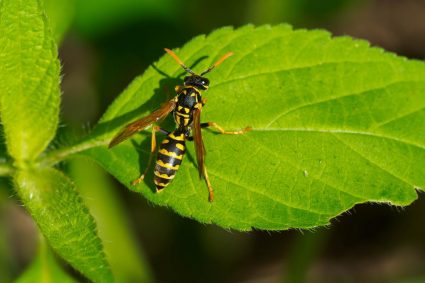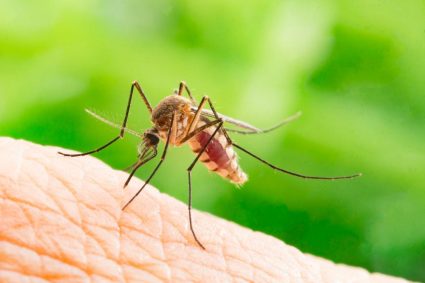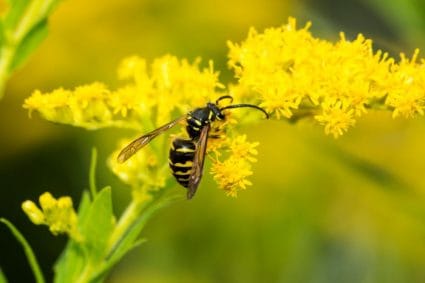
Iguanas can be quite a nuisance, especially for gardeners and homeowners who find these reptiles lounging in their backyards or feasting on their plants. These creatures, while fascinating in their natural habitat, can cause significant damage to your property. If you are facing this problem, you might be wondering, “What repels iguanas?” This in-depth guide will provide you with all the information you need to repel iguanas effectively.
Repelling iguanas can be achieved through a combination of methods. Natural repellents include specific plants such as spinach, broccoli, and citrus fruit trees, as well as homemade spray repellents made from garlic, lime juice, and habanero pepper. Commercial repellents are also available, although their effectiveness may vary. Physical barriers like fences and sheet metal can prevent iguanas from accessing your property. Altering human behavior, such as maintaining yard cleanliness and making loud noises, can also deter iguanas.
Natural Repellents for Iguanas
One of the best ways to repel iguanas is by using natural repellents. Here are some options:
Plants
Planting specific plants that iguanas dislike can help deter them from your garden. Some of these plants include spinach, beets, carrots, Swiss chard, broccoli, Brussels sprouts, turnips, citrus fruit trees, oleanders, milkweed, pigeon plum, and coonties. Iguanas find these plants unappetizing and will likely avoid areas where they are grown.
Homemade Spray Repellents
Homemade spray repellents made from ingredients like garlic, lime juice, habanero pepper, and dish soap can be effective in repelling iguanas. Neem oil and garlic spray are also mentioned as potential repellents. Iguanas dislike the smell of these ingredients, making them effective deterrents.
Commercial Iguana Repellents
There are several commercial products available that claim to repel iguanas. These include:
- Exterminators Choice – Lizard Defense Repellent Spray
- Iguana Scram Pro – a granular, organic, biodegradable repellent
- IGUANA GONE – a spray used with scent strips
- Dr. Pest Iguana Repellent – an all-natural spray
- Iguana Rid – an eco-friendly, non-toxic deterrent spray
- Iguana 5.5 lbs. Repellent Granular Shaker Jug
- Pest Away Spray – a concentrated, organic deterrent for plants
Despite their claims, the effectiveness of these products may vary. It’s important to note that no single method is guaranteed to be 100% effective, so it’s recommended to combine multiple strategies to increase the chances of successfully repelling iguanas.
Physical Barriers
Physical barriers can be an effective way to keep iguanas away from your property. Install sheet metal around trees to prevent iguanas from climbing. You can also protect your plants using chicken wire or mesh to prevent iguanas from accessing them. Additionally, fences, especially those that are smooth and high, can deter iguanas from entering your property.
Altering Human Behavior
Your own behavior can also impact the presence of iguanas on your property. Regularly clean your yard, removing fallen fruits and vegetables that may attract iguanas. Similarly, loud noises, such as those from wind chimes or other noise-making devices, can scare iguanas away.
Common Mistakes in Repelling Iguanas
When trying to repel iguanas, people often make mistakes that can make their efforts ineffective. These include not changing deterrents regularly, not protecting plants, not trimming overhanging branches, not using physical barriers, not maintaining cleanliness, and not considering professional help. By addressing these common mistakes, you can effectively repel iguanas and protect your property from damage.
Protecting Iguanas’ Habitats
While repelling iguanas from your property is important, it’s equally crucial to remember that habitat destruction significantly impacts these creatures. Conservation efforts are necessary to protect iguanas and their habitats from further destruction and to ensure their long-term survival.
In conclusion, repelling iguanas requires a combination of natural repellents, commercial products, physical barriers, and altered human behavior. By implementing these strategies, you can keep your property iguana-free while also contributing to the preservation of these fascinating creatures in their natural habitats.
Frequently Asked Questions
Can I use any type of dish soap for the homemade iguana repellent?
Yes, you can use any type of dish soap for the homemade iguana repellent. The purpose of the soap is to help the mixture stick to the leaves of plants, enhancing its effectiveness.
How often should I reapply commercial iguana repellents?
The frequency of reapplication can depend on the specific product and weather conditions, but generally, commercial iguana repellents should be reapplied every 30 days or after heavy rain.
Are there any risks associated with using commercial iguana repellents?
Most commercial iguana repellents are designed to be safe for use around pets and children. However, it’s always a good idea to read the product instructions and safety warnings before use.
What if I don’t have access to the plants that iguanas dislike?
If you don’t have access to the specific plants that iguanas dislike, consider using homemade or commercial repellents, physical barriers, or altering your behavior to discourage iguanas from entering your property.
Are iguanas protected by law?
The protection status of iguanas can vary by location. In some areas, iguanas are considered an invasive species and can be legally removed. However, in other areas, they may be protected by law. Always check local regulations before attempting to remove iguanas.











